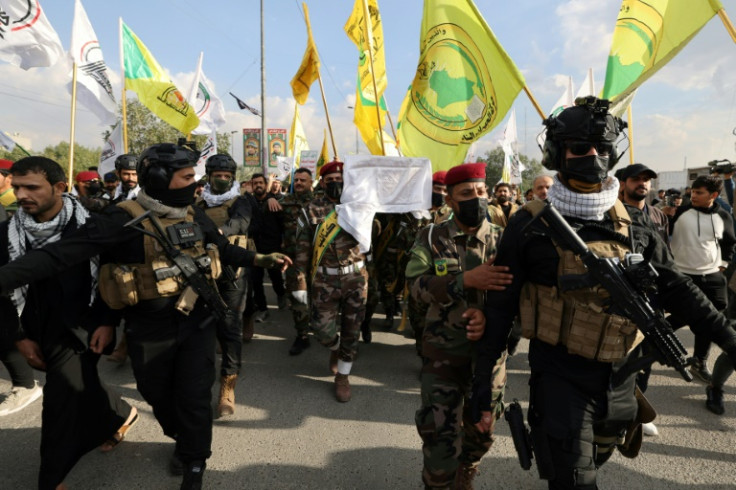Washington, Baghdad To Discuss Future Of Foreign Troops In Iraq

The United States and Iraq said Thursday they will begin discussions on the future of American and other foreign troops in the country, with Baghdad expecting the talks to lead to a timeline for reducing their presence.
Washington has forces in Iraq as part of the international coalition against the Islamic State (IS) jihadist group, but the country's prime minister -- whose government relies on the support of Iran-aligned parties -- has called for the coalition to leave.
The talks -- which have been planned for months -- will come at a time of heightened tensions in Iraq and the region linked to the war between Israel and Hamas, which has sparked a surge in attacks on American and other coalition forces.
Washington and Baghdad agreed to form working groups that would eventually lead to formulating "a specific and clear timeline... and to begin the gradual reduction of its (the coalition's) advisers on Iraqi soil", Iraq's foreign ministry said.
The ministry said the timeline would be contingent on evaluating the "threat posed by IS and its danger" as well as the "reinforcement of the capacities of the Iraqi security forces".
US Secretary of Defence Lloyd Austin confirmed meetings would start "in the coming days" and said the process will "enable the transition to an enduring bilateral security partnership between the United States and Iraq".
"The coalition's mission to defeat (IS) will transition on a timeline that considers three key factors: the threat from (IS), operational and environmental requirements, and the Iraqi security forces' capability levels", Austin said.
There are roughly 2,500 US troops deployed in Iraq and about 900 in Syria as part of the anti-IS coalition formed in 2014 -- the year the jihadist group overran around a third of Iraq.
A senior US defence official said the upcoming meetings would not be a negotiation on the withdrawal of American forces from Iraq, but said Washington "sees a need to transition to a normal bilateral security cooperation relationship".
Deputy Pentagon Press Secretary Sabrina Singh told journalists that the US military footprint in Iraq "will certainly be part of the conversations as it goes forward", indicating that Baghdad's desire for a reduction in these forces is on the table.
There have been more than 150 attacks targeting coalition troops since mid-October, many of them claimed by the Islamic Resistance in Iraq, a loose alliance of Iran-linked groups that oppose US support for Israel in the Gaza conflict.
There was an attempted drone attack late Thursday on a base housing coalition troops in Iraqi Kurdistan, but the aircraft was shot down, the autonomous region's anti-terrorism forces said.
Washington has carried out strikes on Iran-backed groups in response to the spike in attacks, sparking condemnation from Baghdad, with Prime Minister Mohamed Shia al-Sudani calling on the coalition to withdraw from the country.
Hundreds of people waving the flags of pro-Iran groups attended the funeral in Baghdad on Thursday of a fighter killed in US strikes the day before.
On a visit to Iraq, Spanish Foreign Minister Jose Manuel Albares said the spate of attacks targeting US-led troops in Iraq "need to stop".
"We are extremely worried by the constant attacks against international military bases," said Albares, whose country has more than 300 troops deployed to Iraq.
"We are here at the request of the government of Iraq and we will leave when the government of Iraq considers," Albares added, noting that he seeks to "avoid a spillover effect of the crisis in Gaza".
While receiving Spain's top diplomat, Sudani said IS "is no longer a danger for the Iraqi state, and our armed forces are capable of fully assuming the maintenance of security and stability".
A senior US military official on Thursday estimated IS numbers at around 1,000 in Iraq and Syria, including the group's "facilitators, fighters and financiers".
© Copyright AFP 2024. All rights reserved.





















